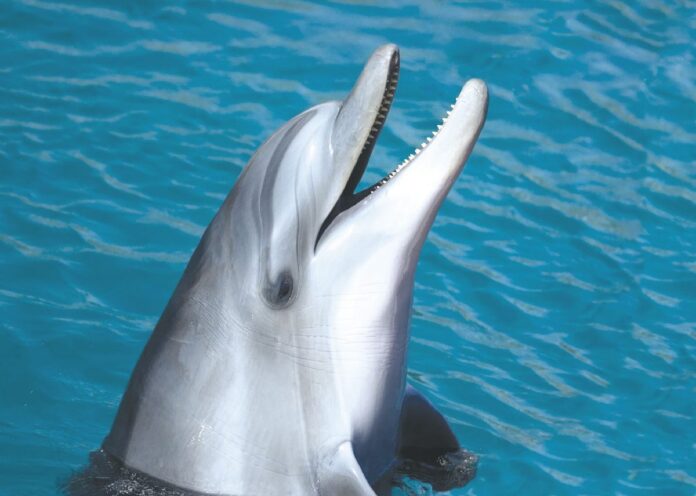HARLINGEN — A marine mammal stranding is stressful not just for the animals but for rescuers, too.
To minimize the effects on all involved, experts on whale and dolphin strandings will host a classroom training session Oct. 7 for 30 volunteers at Isla Blanca Park on South Padre Island.
The location for the training is the former Coastal Studies Lab which is in the process of changing to the UTRGV School of Earth, Environmental and Marine Sciences.
“One year we had three of them, that was a couple years ago,” said Tony Reisinger, Texas AgriLife’s extension agent for coastal and marine resources with Texas Sea Grant. “And then you might go a couple years and not have one — it’s not predictable at all.”
Strandings of whales and dolphins, which can weigh hundreds or even thousands of pounds, require a quick response from rescuers, he said yesterday.
A typical stranding event could involve several dozen responders.
“On average, maybe about 30 people because it’s around-the-clock, and you have to take care of one if it can’t swim by itself,” Reisinger said. “They have to get into wetsuits and walk it around the tanks.
“It’s one of the most strenuous responses I’ve ever been through,” he added. “A lot of people stay up all hours taking care of them and feeding them and it requires vets from the zoo.”
Heidi Whitehead, state coordinator of the Texas Marine Mammal Stranding Network, will teach handling procedures which comply with the Marine Mammal Protection Act and lecture on species that strand on Texas beaches and bays.
Dr. Tom deMaar, senior veterinarian with the Gladys Porter Zoo, will talk about veterinary procedures, zoonotics and quality of life for the animals and responders.
Participants will gain knowledge on handling whales and dolphins and how to transport them and care for them during rehabilitation.
The cost of the class is $15. Pre-registration is required, and once the class is filled with 30 participants, registration will close.
Sponsors and credits
This training is part of the Texas Coastal Naturalist program, which is sponsored by the Rio Grande Valley Chapter Texas Master Naturalists, the Texas Sea Grant College Program at Texas A&M University, the Texas A&M AgriLife Extension Service, The University of Texas Rio Grande Valley and the Gladys Porter Zoo.
This class counts as part of the Texas Coastal Naturalist training curriculum, which includes courses that prepare volunteers in the Laguna Madre area to be first responders to coastal natural emergencies such as cold-stunned
sea turtle events, marine mammal strandings, red tides and oil-tainted wildlife.
The Coastal Naturalist program also includes courses related to the marine environment in its curriculum. Current Coastal Naturalists are also invited to take the class.
The Texas Sea Grant College Program is a partnership of university, government and industry focusing on marine research, education and outreach. It is administered through the National Oceanic and Atmospheric Administration and is one of 33 university-based Sea Grant Programs around the country.
Texas Sea Grant is a non-academic research center in the College of Geosciences at Texas A&M University. Texas Sea Grant Extension is a joint outreach program of Texas Sea Grant, Texas A&M AgriLife Extension Service and the commissioners courts in participating counties.
WHERE — UTRGV School of Earth, Environmental and Marine Sciences lab, Isla Blanca Park
WHAT — Training to respond to dolphin and whale strandings on South Padre Island
WHEN — Oct. 7, 9 a.m. to noon
COST — $15
CLASS — Limited to 30 people
REGISTRATION — Online at www.utrgv.edu/csl




